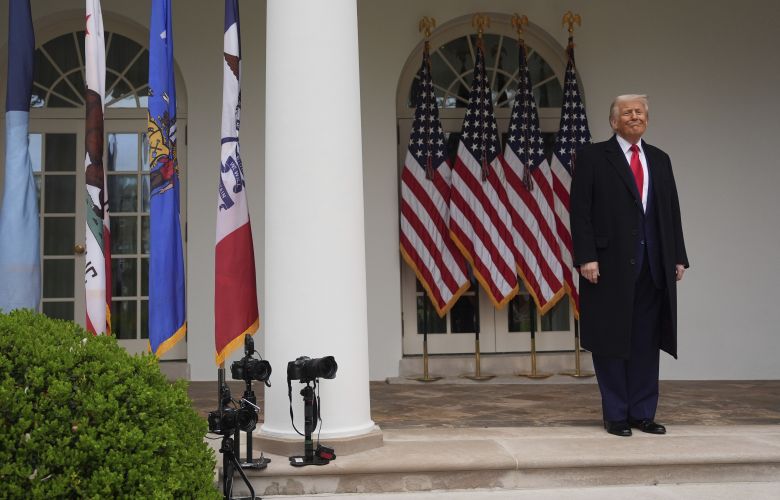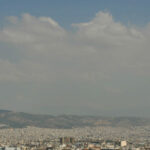US measures are targeting up to islands covered by ice mainly inhabited by penguins
Although some of the duties announced yesterday by Donald Trump, as they target the islands covered by ice mainly inhabited by penguins, the US president’s formula to calculate these duties has a serious side: it affects some of the poorest countries.
The mathematical formula is summarized as follows: You get the US freight deficit with a country, divide it by exports of this country to the US and convert it to a percentage. Then reduce this percentage by half to bring about the “reciprocal” US duty, with a 10%threshold.
As such, a 10% duty was imposed on the volcanic Australian territory of Heard and McDonald in Antarctica. The penguins saved her cheaply, maybe someone said.
But Madagascar – one of the poorest countries in the world with a gross domestic product (GDP) of just over $ 500 – with this tariff formula will face 47%duties. Last year, it had vanilla exports, metals and clothing of $ 733 million to the US.
“Probably no one buys Tesla there,” John Denton, head of the International Chamber of Commerce (ICC), told Reuters, in an ironic reference to the unlikely scenario that Madagascar can appeal to Trump by buying luxury American products.
Madagascar is not alone: the cruelty of the formula applied to economies that do not have the luxury of importing much from the US inevitably leads to a high mutual rate: 50% for Lesoto in South Africa, 49% for Cambodia in Southeast Asia.
“The biggest losers are Africa and Southeast Asia,” Denton said, adding that duties Trump “They are in danger of further harming the development prospects of countries that are already facing a deterioration in trade conditions.”
‘There is really no methodology’
But the formula also causes confusion in rich countries. For the European Union, the US punitive duty is 20% – quadruple of 5% calculated by the World Trade Organization as the EU’s average tariff rate.
“So, at least in terms of us, this is a colossal inaccuracy,” said Stefano Bernie, general manager of the consortium representing the manufacturers of Grana Pantano cheese produced in Italy. “It costs us three times more today to enter the US market than the entry of American cheeses into our market,” he said.
Asked about the methodology, the White House spokesman, Mr. Desai, said in a post on X that “we literally calculated the tariff and non -tariff barriers” and in his post included a snapshot of a White House document describing the analysis.
Asked by CNBC how the Trump government’s formula emerged, US Secretary of Commerce Howard Lutnik did not give an immediate explanation, but said that economists of the United States Commercial Representative (USTR) worked for years in a measurement that has been a measurement that reflected.
However, economists around the world have rushed to say that the terms cancel each other in such a way that it could be reduced to a simple quotient of freight deficit over commercial exports.
“There is really no methodology here,” said Mary Lovli, a partner in Intituto Peterson. “It’s like discovering that you have cancer and finding the drug based on your weight divided by your age. The word “mutual” is extremely misleading. “
Robert Khan of the Eurasia Group consulting company agrees that this formula has produced “many such stupid numbers that are not essential”. “He sends a message: that we are withdrawn from our relationships and alliances … And this is a cold for many of our traditional allies,” he told Reuters.
Others note that the Trump government’s move also raises questions about the widespread view that Trump is seeking bilateral negotiations with governments that will eventually lead to relaxation of US duties.
European stock markets were closed with a fall
European stock markets closed a significant decline, the day after US President Donald Trump’s announcement to impose duties in almost all countries around the world.
The Paris Stock Exchange closed with 3.31%, the highest percentage since March 15, 2023.
In Wall Street, around 19.00 (Greek time), the main indicators recorded heavy losses: -3.78% for the S&P 500, -4.88% for the high -tech NASDAQ companies, -3.10% for Dow Jones.
At the same time, the dollar also fell against the euro by 2.06%to $ 1,1053 per euro.
Technology giants, using abroad, such as Taiwan (which imposed 32% duties) see their shares fall: -8.22% for Apple, around 18.50 (Greek time), -6.19% for NVIDIA, -5.58% for Tesla, -7.22% for Amazon, -6.02% for Amazon, -6.02% for Amazon, -6.02% for Amazon, Meta, -3.04% for Alphabet.
In Europe, semiconductor companies suffered serious losses: Infineon closed -7.96% in Frankfurt and Stmicroelectronics falling -8.17% in Paris.
The clothing sections also record high losses due to duties in China (34%), Vietnam (46%) and Cambodia (49%): Wall Street, GAP declines by 18.57%, Ralph Lauren by 15.93%, Lululemon by 11.03%, Nike by 9.97%.
In Europe, Adidas closed 11.72%, Puma fell 11.16%, JD Sports by 7.89%.
The prospect of shrinking world trade also threw the shares of maritime transport companies. German Hapag-Lloyd closed 7.95% in Frankfurt, AP Moller-Maersk with 9.49% drop in Copenhagen and Kuehne + Nagel with a 2.34% drop in Zurich.
“British banks are particularly exposed to Southeast Asia. If China’s export economy deteriorates, this is not good for their activity, “explained Guillaume Saluan, Delubac Am. On the London Stock Exchange, Standard Chartered’s stock fell 12.80%, Barclays by 9.08%and HSBC by 8.62%.








